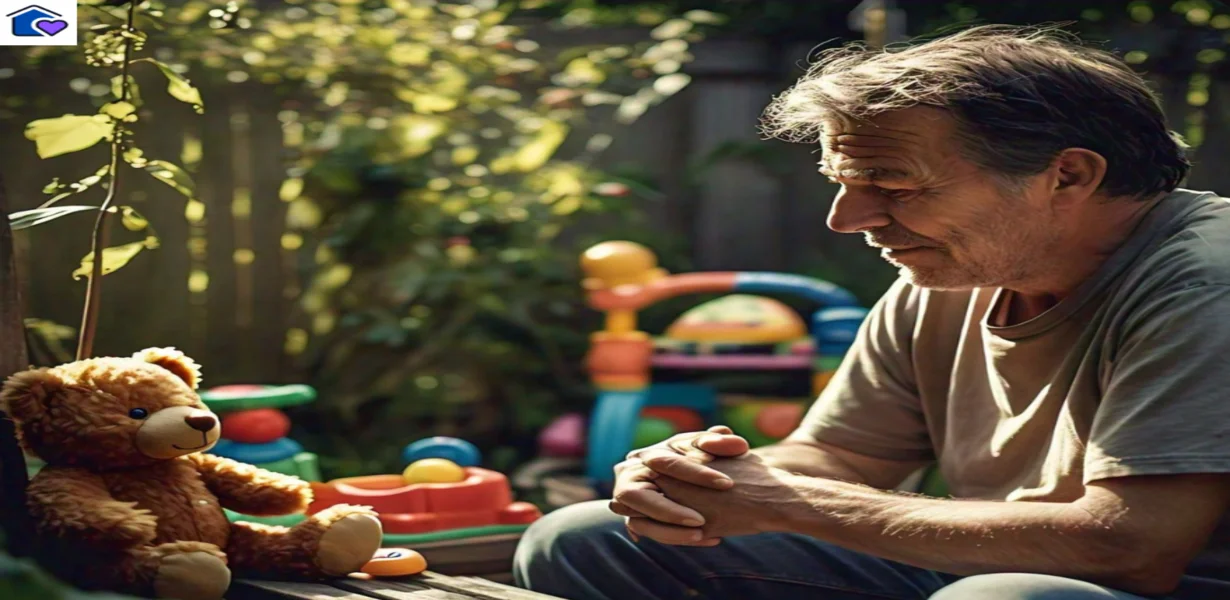Childhood Trauma in Adults
A person’s entire life can be impacted by childhood problems with can cause childhood trauma in adults, which is a severe and permanent wound. Adults’ perceptions of the world are frequently shaped by the wounds of early trauma, ranging from relational problems to mental anguish.
The purpose of this article is to examine the impacts of childhood trauma in adults, how it may present in adulthood and strategies for recovery and overcoming these obstacles.
Childhood Trauma: What Is It?
When traumatic events happen in a person’s early years, usually before the age of 18, it is referred to as childhood trauma. These traumatic experiences can include being the victim of domestic violence, emotional neglect, physical or sexual abuse, or both. Such incidents can have a significant effect on a person’s emotional and psychological growth.
Types of Childhood Trauma
Recognizing the effects of childhood trauma can be made easier by being aware of its various forms. These are a few typical forms:
- Physical abuse: When an adult or caregiver uses harmful physical methods that cause harm or pain, it is considered abuse.
- Sexual Abuse: When a youngster is the target of unwanted or inappropriate sexual behavior.
- Emotional Neglect: The absence of emotional care or support required for normal emotional growth.
- Domestic Violence: Observing aggression amongst family members or caretakers.
- Parental Loss: Death, divorce, or primary caregiver desertion.
How Childhood Trauma Disturbs Adults
Adulthood can see a range of manifestations of the effects of childhood trauma. These consequences, which affect how people interact with others and view themselves, might be behavioral, psychological, or emotional.
Effects on Emotion and Psychology
- Anxiety and despair: Adults who suffered trauma as children frequently battle long-term anxiety and despair. Resurfacing emotional sorrow from their past can result in enduring melancholy or anxiety.
- Low Self-Esteem: A person’s sense of value can be harmed by trauma. Adults may experience confidence and self-image issues if they believe they are unworthy of love or respect.
- Post-Traumatic Stress Disorder (PTSD): Often brought on by traumatic experiences as a child, PTSD is typified by intense anxiety, nightmares, and flashbacks. Adults suffering from PTSD may find it difficult to handle stress and may become emotionally numb.
Behavioral Indications while Having Childhood Trauma
- Difficulty in Relationships: Early trauma can cause trust concerns, abandonment anxiety, and trouble building solid bonds. Unstable or toxic relationships may result from this.
- Addictive Behaviors: Some people use substance misuse, gambling, or other addictive behaviors as a way to escape from emotional suffering.
- Self-Harm: Adults who experience extreme emotional distress may turn to self-harm or other harmful activities as a coping mechanism.
Identifying the Symptoms of Childhood trauma in Adults

It might be difficult to recognize the symptoms of trauma, particularly if the person has not previously dealt with their past traumas. But identifying these symptoms is essential to getting the support and assistance you need.
Typical Symptoms
- Intrusive Memories and Flashbacks: Reliving painful situations via intrusive thoughts or flashbacks.
- Hypervigilance: Having an elevated level of worry that causes one to be overly vigilant or easily startled.
- Emotional Numbness: The inability to feel or express emotions, which results in a feeling of separation from other people.
The Indicators of Behavior
- Avoidance: Staying away from individuals, locations, or pursuits that bring up memories of the trauma.
- Self-Isolation: Avoiding intimate relationships and withdrawing from social engagements.
- Overreaction to Stress: Displaying strong feelings in response to stressors that other people might find trivial.
The Way to Recover from Childhood Trauma
Recovering from the trauma of childhood is a journey that calls for patience, time, and the appropriate kind of support. Overcoming the impacts of early trauma can be helped by a variety of treatment modalities as well as self-help techniques.
Medicinal Strategies
- Psychotherapy: Consulting with a certified specialist can offer a secure environment for discussing and resolving past trauma. Particularly successful treatments include trauma-focused therapy and cognitive-behavioral therapy (CBT).
- Eye Movement Desensitization and Reprocessing (EMDR): This therapy lessens the emotional impact of traumatic memories by assisting patients in processing and integrating them.
- Group Therapy: Talking with people who have gone through similar things can help you feel less alone and can offer support.
Self-Management Techniques
- Mindfulness and Meditation: Mindfulness can assist people in maintaining their sense of a sense of grounded and in managing anxiety stemming from prior trauma.
- Journaling: Putting thoughts and feelings on paper can be a therapeutic approach to work through emotions and understand one’s past trauma.
- Healthy Lifestyle Options: Eating a well-balanced diet, getting regular exercise, and getting enough sleep will enhance general wellbeing and aid in emotional recovery.
Building Sturdiness and Proceeding

Developing resilience and figuring out how to go on with courage and optimism are essential to overcoming childhood trauma. The following are some methods that aid in healing and personal development:
Building Up Positive Connections
- Seek Support: Healing can be promoted by surrounding oneself with empathetic and understanding friends and family members.
- Set limits: Respect and emotional safety are maintained in relationships when limits are set in a healthy way.
Creating Objectives and Following Interests
- Establish Personal Goals: A sense of direction and purpose can be obtained by establishing and pursuing personal goals.
- Indulge in Hobbies: Pursuing interests and hobbies that make you happy and fulfilled might improve your general wellbeing.
Accepting Your Own Compassion
- Develop Self-Kindness: Healing requires treating oneself with empathy and understanding.
- Forgive Yourself: It’s important to acknowledge that healing is a process and to let go of judgment when one makes mistakes.
In Summary of Childhood Trauma
Childhood trauma is a potent force that has the capacity to profoundly alter a person’s life. The first steps in healing are realizing its effects, identifying the warning signals, and getting the right assistance. Through the investigation of therapy alternatives, implementation of self-help techniques, and cultivation of resilience, adults can strive to surmount the lingering effects of their history and construct a more robust and satisfying future.
Speak with a mental health expert if you or someone you love is experiencing the aftereffects of childhood trauma. This can be a critical first step toward recovery. Recall that there is support available and that healing is possible.

There are additional articles to read.
There are some more articles based on different topics regarding family members and other home organizing issues; if you want to read them, then visit actual home guide, and for more information about invest ideas you can visit invest ideas.
Relevant Post:
- Time Saving Cleaning Tips: Revealing 10 Steps to Clean up Your Tidy Home
- Importance of Money: 6 Best Ways to Teach Every Age Kid About Money
- Retirement Planning: 5 Impressive points to calculate your needs accurately.
- Water Preservation: 6 Effective Strategies and Solutions for a Maintainable Future
- Conflicts with your Spouse: Exclusive 8 ways to resolve Conflicts Between Husband and Wife that Never Fails
- Types of Behaviour: An Exclusive Overview on 10 Behaviours Types
You May Like:
- 151 Bold Cycling Team Names For Your Events in 2024
- 120 Best Police Team Names That Will Arrest Your Attention
- 120 Robotics Team Names: Stand Out in Every Contest
- Best Golf Team Names for 2024 | Funny & Creative also
- 186 Scavenger Hunt Team Names Perfect for Explorers
- 197 Best Kan Jam Team Names; Funny, Clever, & Pop Culture
- Smash the Game: 175 Cool Ping Pong Team Names
- 125 Game-changing Bocce Ball Team Names for 2024
- 162 Best Flag Football Team Names in 2024
- Best 147 Euchre Team Names for an Epic Night
- 207 Best Volleyball Team Names That Are A Hit in 2024
- 273 Badminton Team Names: Smash Your Way to Victory!
- Top 276 Game-Changing Tennis Team Names for 2024
- Inspiring Cell Group Names: Ideas to Unite in 2024
- 209 Best Softball Team Names Trending in 2024
- 6 Shocking Reasons Why CrossFit Ruined My Life?
- 12 Labors CrossFit Columbia in Columbia MD A Comprehensive Guide
- Water Preservation: 6 Effective Strategies and Solutions for a Maintainable Future
- Do CrossFit Athletes Take Steroids? Best Guide 2024
- How Much Does It Cost to Start a CrossFit Gym?
- How can family members effectively solve problems together?
- Common Family Problems and How to Solve Them
- A Complete And Impressive Guide on CrossFit 10 General Physical Skills
